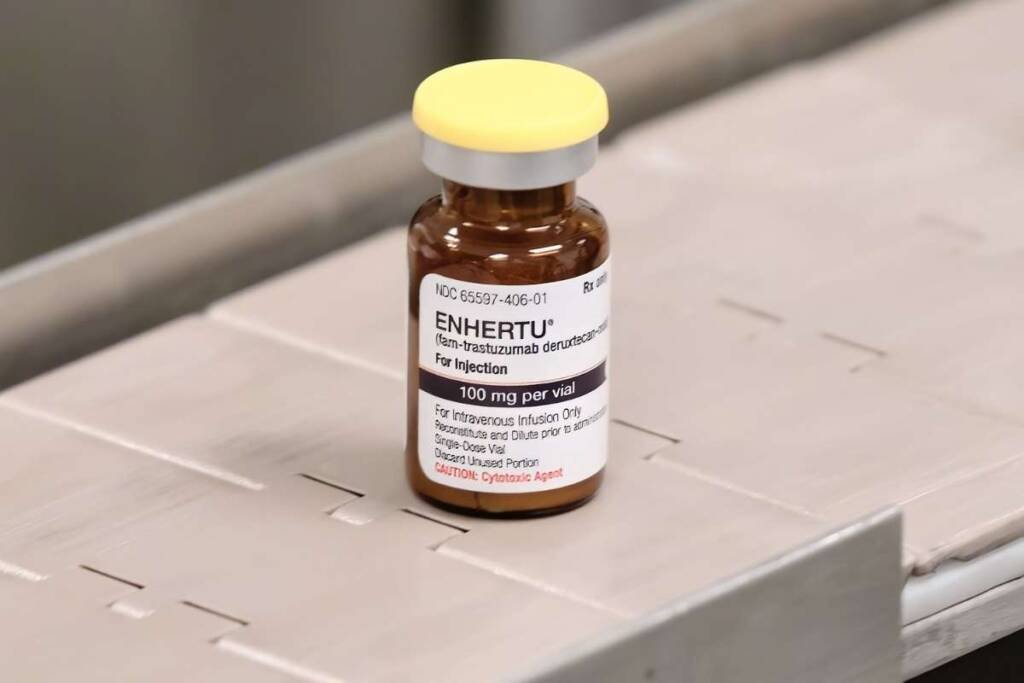AstraZeneca and Daiichi Sankyo have received a boost in their efforts to gain approval for Enhertu as a therapy for all HER2-positive tumors, regardless of their location in the body.
In the DESTINY-PanTumor02 study, Enhertu, a HER2-directed antibody-drug conjugate (ADC), demonstrated “clinically meaningful” improvements in both progression-free survival (PFS) and overall survival (OS) when used as a second-line therapy for HER2-expressing tumors. Although specific data on these endpoints are not yet available, the study’s findings align with earlier results presented at the ASCO cancer conference, which revealed an objective response rate (ORR) of 37.1% across a broad range of HER2-expressing advanced cancers. Many of these cancer types currently lack approved HER2 therapies.
Related: ASCO 2023: Patients With HER2-Positive MCRC Benefit From Lower Dose Of Trastuzumab Deruxtecan
Currently, Enhertu is approved for the treatment of certain HER2-positive and HER2-low solid tumors in breast, gastric, and lung cancers. However, the DESTINY-PanTumor02 study includes a diverse set of less common diseases, such as biliary tract, bladder, cervical, endometrial, ovarian, and pancreatic cancer. Although each of these cancers represents a relatively small patient population individually, collectively, they could present a substantial new market for Enhertu.
The efficacy of Enhertu showed some variation across different cancer types, with a smaller benefit observed in pancreatic cancer. This disparity in efficacy may be a consideration during regulatory discussions.
AstraZeneca and Daiichi Sankyo expressed confidence that the new data would support their ongoing discussions with global health authorities. If successful in convincing regulators of the drug’s value in treating any HER2-expressing tumor, Enhertu would join a select group of cancer therapies with ‘tumor-agnostic’ indications based on biomarker presence.
Currently, other tumor-agnostic therapies include Eli Lilly’s Vitrakvi and Roche’s Rozlytrek for NTRK-mutated tumors, Bayer/Eli Lilly’s RET inhibitor Retevmo, Merck & Co’s Keytruda for tumors with microsatellite instability-high (MSI-H) or mismatch repair deficient (dMMR) mutations, and GSK’s Jemperli for dMMR-positive cancers.
HER2 is more prevalent than the biomarkers targeted by these other tumor-agnostic therapies, with low levels found in various tumor types, such as melanoma, lung cancer, colorectal cancer, and bladder cancer, and around 20% of breast cancers expressing HER2.





























